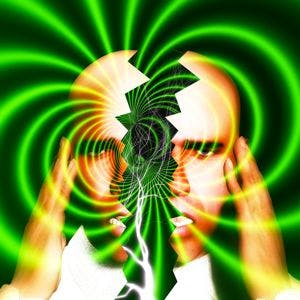Articles categorized as Memory Loss
Do Statins Affect Memory or Scramble Your Brain?
Millions take statins to prevent heart problems. Can statins affect memory? This question still remains highly controversial after decades.
Are My Medications Causing Me Memory Problems?
Could memory problems be due to drugs rather than aging or dementia? Meds turned one reader's memory to "garbage." Beware anticholinergics!
Could Sunshine Be Responsible for Keeping the Brain Sharp?
Would sunshine be responsible for better cognitive function? Studies are suggestive, not definitive, but it does seem possible.
Lyrica (Pregabalin) Side Effects Include Confusion and Brain Fog
Lyrica (pregabalin) side effects can be daunting. They include confusion, dizziness, fatigue, confusion, weight gain and depression.
Can Statins Cause Memory Loss and Transient Global Amnesia?
Most health professionals do not believe that statins can cause transient global amnesia or other memory problems. What do patients say?
Do Blueberries Help Older People with Memory?
Numerous studies show that anthocyanins in blueberries help lower systolic blood pressure and improve cognitive performance of impaired individuals.
Global Amnesia Is A Very Scary Statin Side Effect
Have you ever heard of transient global amnesia (TGA). It is a temporary loss of memory that can last for hours. Are statins associated with attacks of TGA?
Pomegranate Juice Is Good for Your Brain, Based on Science
There is growing evidence that pomegranate juice can help control inflammation in the body. That could mean that pomegranate juice is good for your brain.
A Big Statin Controversy: Do Statins Impair Memory?
Statin-type cholesterol-lowering drugs such as atorvastatin, lovastatin, simvastatin and rosuvastatin remain highly popular. Can such statins impair memory?
Vitamin B12 Lack Led to Balance and Memory Problems
A serious vitamin B12 lack due to PPI medication, vegan diet, or stomach inflammation can cause trouble with balance, cognition and fatigue.
Don’t Count on Stimulants for Better Memory
Research shows it's a mistake to take stimulants for better memory and attention. The gains are tiny, and the drugs interfere with getting good sleep.
Men Who Love Veggies Have Better Memory
The Health Professionals Follow-Up Study showed that men who usually eat six servings or so of vegetables daily have better memory and cognitive ability.
How Much Exercise Do You Need to Boost Your Brain?
Even a short session in the gym–just ten minutes–may boost your brain by increasing the connections between the dentate gyrus in the hippocampus and certain parts of the cortex.
Alarming Anticholinergic Load Scrambles Brain
Taking many meds that interfere with the brain chemical acetylcholine can add up to a massive anticholinergic load, brain fog and memory problems.
Can Regular Sauna Baths Protect your Brain and Your Heart?
Have you ever had a sauna bath? You might be surprised to learn that sitting naked in a hot room and sweating might be good for your heart and your brain.
Will High Blood Pressure Protect Older Brains from Dementia?
Dementia is horrific. Most people would do almost anything to avoid this memory-robbing condition. Could very old people benefit from higher blood pressure?
Did Popular PM Pain Reliever Trigger Memory Loss?
Millions of Americans worry about memory loss. They never think to link an OTC drug they take to get to sleep as contributing to brain fog. Is it a risk?
Drugs That Cause Brain Fog For People Over 60
Doctors get little training on side effects of anticholinergic medications. Such drugs are widely prescribed but patients are rarely warned about brain fog.
Common Medicines Throw a Monkey Wrench Into Mental Machinery and Memory
Common medications, both OTC and prescription can contribute to memory problems and confusion. Is someone you love taking an anticholinergic drug?
Do Cholesterol-Lowering Drugs Damage Memory?
Do cholesterol-lowering drugs cause memory problems? That question has been controversial for years. A new study adds fuel to the fire.




















